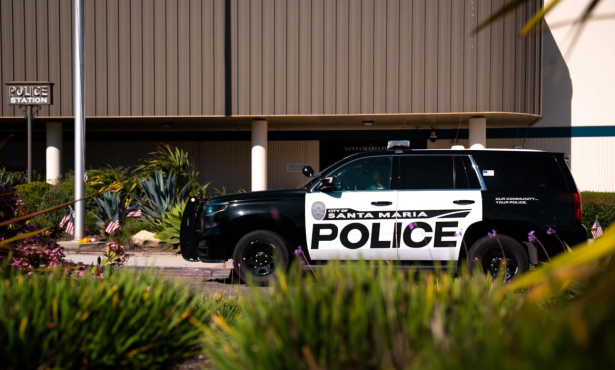Homeless Could Get ‘Tiny Box’ Homes Downtown
Neighbors Complain as City Hall Fast-Tracks Grant Application
There may soon be 40 “tiny box” temporary homes installed at the commuter parking lot at the intersection of Castillo and Carrillo streets as part of an emergency plan to house the most service-resistant homeless people in Santa Barbara. But only if City Hall wins a state grant application the City Council just authorized by a 5-to-2 vote. Should the city’s $6 million grant application be approved, the 40 trailers on wheels would be set up via an unprecedented collaboration between Cottage Hospital, Santa Barbara city police, the city Housing Authority, as well as Orange County–based group City Net, which specializes in street outreach work with homeless people.
The vote came after much hand-wringing by the mayor and councilmembers and after intense blowback by neighborhood residents who showed up to object at the utter lack of public notification. They’d only been notified of the grant application late this past Saturday afternoon, they complained, hardly enough time to vet so intense a land-use change with such intense ramifications for the neighborhood. Some neighbors went into graphic detail about homeless people in the area already, urinating in their bushes, sleeping in their yards, and getting into fights in front of their homes. They also objected that the loss of commuter parking spaces would adversely affect area residents, who rely on the lot being available on weekends for visitors.
“It’s a great idea,” said one speaker, “just not here.” Anna Marie Gott, a frequent critic of City Hall, termed the short notice residents were given “disgusting” and “unconscionable.” Many residents agreed the proposal appeared promising, innovative, and even necessary; they just felt blindsided.
City Administrator Paul Casey acknowledged the public was given little notice and even less time to respond. City Hall, he said, was given an excruciatingly tight deadline by state officials administering a competition for $550 million in Housing Emergency Aid Project (HEAP) funds established last year to address California’s homelessness crisis. Santa Barbara County is eligible for $9 million, and City Hall is applying for $6 million of that. Grant conditions were relayed to applicants only on October 12; the deadline for applications is November 16. City staff scrambled to put together what Casey called “a great proposal,” in extremely short order. Chronic homelessness, he said, was clearly one of the most urgent needs in the community. The $6 million, he said, would help meet it. Typically, he added, neither the council nor the public is notified of grant applications. An exception was made because of the size and impact of the project envisioned.
Mayor Cathy Murillo led the charge to approve the grant application, recounting the daily complaints she hears about the size and seriousness of Santa Barbara’s homelessness problem. If the council did not approve the grant, the city would lose out on millions of dollars of homelessness relief funding, she said. HEAP funds come with strings; grant administrators wanted actual housing, not services. If the city gets the grant, Murillo said, City Hall would have to see to it that the neighborhood was protected. Rob Frederick of the Housing Authority said private security would be provided 24/7.
Councilmembers Randy Rowse and Jason Dominguez voted not to approve the grant application. Rowse cited concern for neighborhood residents. Councilmember Kristen Sneddon, who’d expressed enthusiastic support for doing something, also expressed qualms. Councilmember Eric Friedman wondered why there had to be so many. “Why 40? Why not 5, 10, 20?” he asked. Ultimately, the council was moved by the urgency of the problem and the shortness of time in which to act.
If the grant is approved, it’ll fund the project for 30 months.



